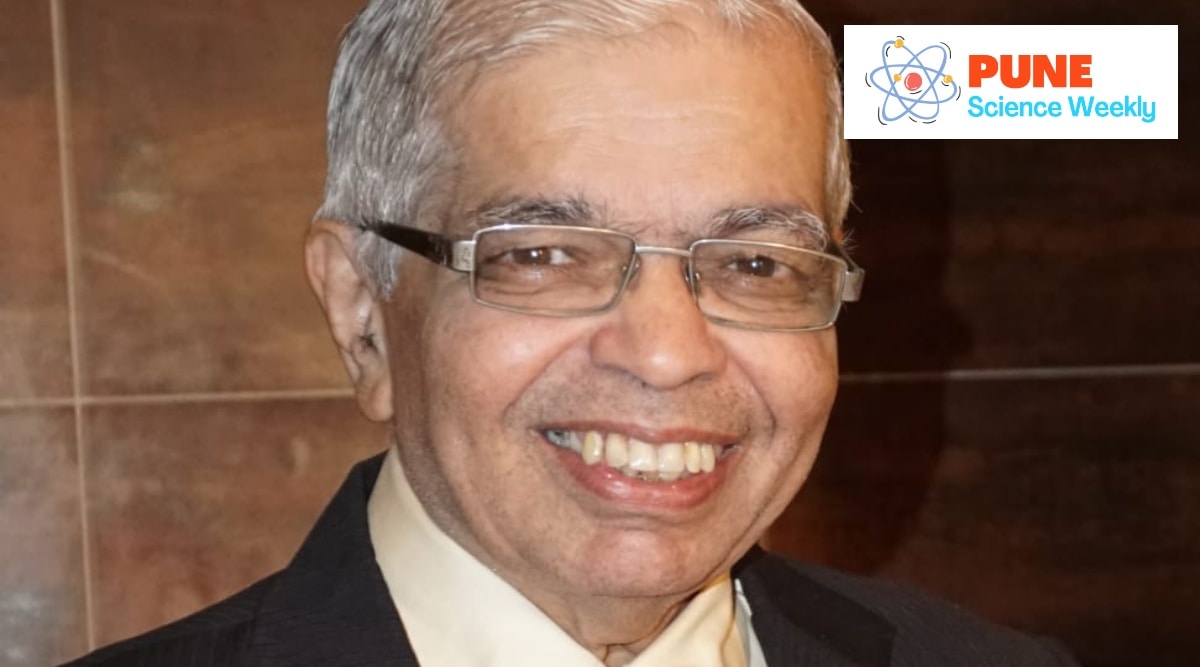 Dr Arvind Natu
Dr Arvind Natu For 50 years, Dr Arvind Natu has been taking the road between Pune University and CSIR-National Chemical Laboratory (NCL). These two institutions have seen Natu grow from an ordinary boy from Belgaum to a scientist of organic chemistry, making significant contributions to pharmaceuticals and organic synthesis.
At 75, Natu still travels far and wide to interact with underprivileged students with a single motto turned life mission – to motivate young potential students to study science. “I may have toured and given over 750 lectures to school and college students from underprivileged backgrounds in the remotest area of Maharashtra and India. This, I believe, is to give back to the society,” says Natu, who is presently the chairman of the Board of Governors of IISERs – Kolkata and Thiruvananthapuram.
Hailing from a humble background, Natu’s father was determined to give his children a good education and knew that Pune was the hub. In the early 1960s, Natu migrated to Pune but his early student days were not easy, he says. English medium, especially for oral communication, hindered Natu’s progress while starting off graduation at SP College and later post-graduation at the University of Pune. “Initially, I could barely speak in English. I soon realised the need for mastering the language in order to progress and took up a special course,” he shares. Since then he has had a flair for learning new languages.
Back in those days, even for submission of a PhD thesis, the student had to have basic knowledge of one foreign language. “That is how I casually opted for German as a hobby,” he recalls.
CSIR-NCL opened this young Pune University graduate opportunities to real laboratories and industry projects. “I joined NCL in 1970 and enjoyed a great amount of academic freedom. I bagged a number of opportunities to work on industry projects, mainly in process development for drug development and pharmaceuticals, developing antifungals and others,” he shares.
To date, Natu credits his mentors Prof MS Wadia at Pune University, Dr CR Narayanan, and Dr VN Gogte at CSIR-NCL to have laid a strong career foundation and kindled his interests in organic chemistry. Very early, Natu also became a family man with two daughters.
It was his post-doctoral research student days in Germany during 1976-1979 that changed Natu’s outlook on academics, life and the overall world.
After taking a four-month German language course at Goethe Institute in Luneburg near Hamburg, Natu was geared up to join the Institute of Organic Chemistry Technical University in Berlin. At the German university, his group was involved in working on natural products. He was tasked with isolating chemical compounds having a medicinal value from plants that were imported from South Africa.
“During my coursework, I must have isolated over 400 compounds. I vividly recall spending my first Christmas in Germany working at the lab along with my guide—the only two people at the university working on a Christmas day. I had to prove myself,” he recalls.
Being a husband and a father to two daughters, the post-doctoral studentship was in some ways odd for Natu, who says, “It was not the age but the way my fellow classmates thought and hung around made me feel an odd one. Yet, I enjoyed being a bachelor and would often go on short weekend trips to neighbouring countries.”
Germany has a special place in Natu’s heart, he says. “Studying alongside students from multiple nationalities gave me a true flavour of internationalisation. My post-doctoral training in Germany instilled the desired attitude and approach towards science and sharpened my intellect. The facilities there allowed one to pursue great research,” he narrates.
Upon his return to India and resuming work at NCL, Natu also stepped up research works for the industry. He also took up the role as an adjunct professor at the Department of Biotechnology at Pune University, and the teaching continued for 23 years. “I took a keen interest in learning Biology nearly 15 years after dropping the subject in Class 12. But that has only strengthened my profile as a scientist. There is no age bar for new learnings,” he shares.
A few years ago, he delivered a 28-part lecture series titled ‘Biology and Chemistry of DNA and RNA’ as an invited scientist at the Bielefeld University, Germany.
In 2018, Natu became one of the 12 Indian recipients of Germany’s Cross of Merit—the highest tribute to a foreign national. This was in recognition of his contributions to promoting science and education between India and Germany.
Half a century has passed since Natu was a PhD scholar and a lot has changed, for the good, in India’s research landscape. “Unlike today, our interactions with research guides were limited back in the 1970s. Also, there would be no ready-to-use chemical reagents available at labs, so we would make our own. I remember using about 5 kgs of clove extracts to prepare isolation of the starting material for my actual research. Of course, now students cannot function as we did,” he notes.
“My father was a tailor. As young students, we did not have much information about courses or colleges. In comparison to the level of awareness that I see in today’s students, we were unaware of the opportunities,” he narrates.
While Natu admits that India, for several decades, lacked a focused problem-solving approach using science, he is now beginning to see a change and is hopeful. On India’s future in science and the manner research happens today, he shares, “India is heading in the right direction. There is a lot more focused research happening across fields like energy, water, environment and others.”
- The Indian Express website has been rated GREEN for its credibility and trustworthiness by Newsguard, a global service that rates news sources for their journalistic standards.

